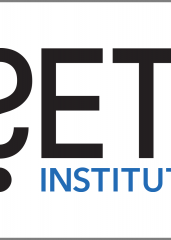This chair is named in honor of the late Barney Oliver, long-time Vice President for Research at Hewlett Packard Company, member of the SETI Institute Board of Trustees, Chief Engineer of the Institute after his retirement from HP, and SETI pioneer. It recognizes Dr. Oliver's legacy of visionary leadership in SETI from Project Cyclops to Project Phoenix, and the scientific and engineering wisdom he generously bestowed on the Institute since its founding in 1984.
The establishment of this Chair also recognizes the fact that the Search for Extraterrestrial Intelligence is the cornerstone of all activities at the Institute. This central thrust is now emphasized by conferring on a distinguished world leader of SETI science the honor of a Chair named after Barney Oliver and dedicated to SETI.
In establishing this Chair, the Board makes permanent a position that will always honor a recipient who made major contributions to one or more fields in the domain of SETI, which includes studies of the origin, evolution, nature and distribution of life in the universe, the study of related phenomena in the disciplines of astrophysics, astronomy, and the planetary sciences, the science and technology of SETI (e.g. instrument science, physics, engineering, signal detection, computation, and antenna design). The recipient will have published extensively and will be widely recognized in the scientific and/or engineering communities.
In the tradition of the great man for whom this position is named, the holder of the Chair will provide leadership in the future planning and development efforts that are so critical to the advancement of the Institute and its work. The holder of the Chair will represent the Institute in the scientific and engineering communities at the national and international level, and will have a strong responsibility to advance the Institute's visibility and ensure its continued credibility within these communities.
The first appointee to this Chair, Dr. Jill Cornell Tarter, is one of the world's most prominent leaders in the field of SETI . Dr. Tarter, a founding member of the Institute's staff, received her Bachelor of Engineering Physics Degree with Distinction from Cornell University and her Master’s Degree and a Ph.D. in Astronomy from the University of California, Berkeley. She served as Project Scientist for NASA’s SETI program, the High Resolution Microwave Survey, and has conducted numerous observational programs at radio observatories worldwide. Since the termination of funding for NASA’s SETI program in 1993, she has served in a leadership role to secure private funding to continue the exploratory science.
This innovative array of 350 6-m antennas (Allen Telescope Array) will simultaneously survey the radio universe for known and unexpected sources of astrophysical emissions, and speed up the search for radio emissions from other distant technologies by orders of magnitude.
Tarter’s work has brought her wide recognition in the scientific community, including the Lifetime Achievement Award from Women in Aerospace, two Public Service Medals from NASA, Chabot Observatory’s Person of the Year award (1997), Women of Achievement Award in the Science and Technology category by the Women’s Fund and the San Jose Mercury News (1998), and the Tesla Award of Technology at the Telluride Tech Festival (2001). She was elected an AAAS Fellow in 2002 and a California Academy of Sciences Fellow in 2003. In 2004 Time Magazine named her one of the Time 100 most influential people in the world, and in 2005 Tarter was awarded the Carl Sagan Prize for Science Popularization at Wonderfest, the biannual San Francisco Bay Area Festival of Science.
Tarter is deeply involved in the education of future citizens and scientists. In addition to her scientific leadership at NASA and SETI Institute, Tarter was the Principal Investigator for two curriculum development projects funded by NSF, NASA, and others. The first, the Life in the Universe series, created 6 science teaching guides for grades 3-9 (published 1994-96). Her second project, Voyages Through Time, is an integrated high school science curriculum on the fundamental theme of evolution in six modules: Cosmic Evolution, Planetary Evolution, Origin of Life, Evolution of Life, Hominid Evolution and Evolution of Technology (published 2003).
Tarter is a frequent speaker for science teacher meetings and at museums and science centers, bringing her commitment to science and education to both teachers and the public. Many people are now familiar with her work as portrayed by Jodie Foster in the movie Contact.
As of 2018, Andrew Siemion is the holder of the chair.






